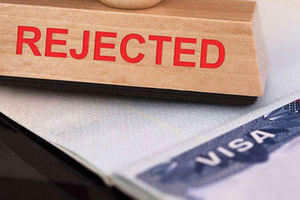Kenyans have chosen joy and love as world marks emoji day – Report

A woman enjoys using emojis on her phone.
A happy face, an octopus, fire, an aubergine and a thumbs up. What do they all have in common? They’re all emojis, widely used ways to say things with one picture in the internet age.
And according to the latest data released by Facebook for the World Emoji Day on July 17, Kenyans have fallen into deep affection with emojis that exhibit joy and love, depicting a generally happy and caring population.
“In Kenya, the top overall emojis used are; face with tears of joy, love heart and rolling on the floor laughing. This is data for both men and women,” says findings of a study done between April 4 and July 3, 2021 by the social media company.
They say a picture is worth a thousand words, but for many netizens, one or two tiny pictures have been telling stories more easily than volumes of text.
According to the survey, the popular food and drink emojis in Kenya are birthday cakes, aubergines, short cakes, candies and lollipops.
Tears of joy
By age group, those aged 18 to 24 love emojis of face with tears of joy, love heart and rolling on the floor laughing.
“Those aged between 25 and 44 like using emojis of face with tears of joy and love heart. Kenyans aged above 45 like sharing emojis of love heart, person with folded hands, and a face with tears of joy on Facebook,” the study reveals.
They’re not hieroglyphs, but they are the social media language that everyone can understand, though some, like the aubergine, have been more easily misinterpreted than others.
Facebook’s Eastern Africa Communications Manager, Janet Kemboi told Nation.Africa that the social networking giant is putting more efforts to connect more people and bringing the world closer together.
“Every month, billions of people around the world use Facebook and Messenger to connect with their family, friends and communities. Often those connections are made through emojis. Emojis add colour, humour and vibrancy to our chats. Oftentimes, we rely on them to say what words can’t,” she said.
Facebook has also launched soundmojis (audio emojis) on Messenger, a new feature that enables users to send short sound clips.
Surprising delights
People will be able to choose from a library of options that range from sound effects such as the chirping of crickets, clapping, drumroll, and ‘evil’ laughter to popular song clips.
Each sound is sent as an emoji, providing what Facebook calls “surprising delights through culturally-relevant audio clips.”
The company said the Soundmoji library will be updated regularly with new sound effects and famous sound bites.
Each sound is represented by an emoji, keeping the visual emojis loved in play, while bringing sound into the mix of the social multimedia experience.
“Language can be very abstract, particularly when communicating digitally,” says Paul Hunt, Typeface Designer and Font Developer at Adobe.
“Emojis can help approximate tone of voice, gestures and emotional reactions better than words alone. This is the potential strength of an emoji: to help us connect more deeply to the feeling behind our messages.”




